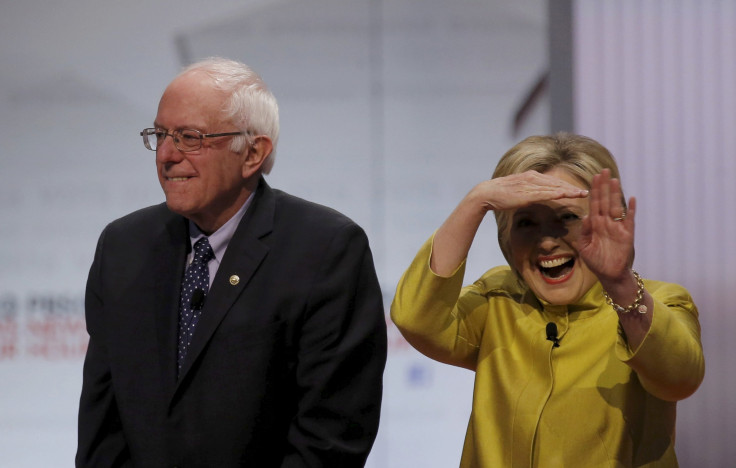Marijuana Legalization 2016: Where Do Hillary Clinton And Bernie Sanders Stand On Cannabis Use?

As Sen. Bernie Sanders and former Secretary of State Hillary Clinton prepare for Super Tuesday, marijuana legislation has hit the headlines again. The Vermont Senate approved a bill Thursday that would allow people over 21 to carry one ounce and would create licenses for retailers and growers.
With Colorado having passed legislation legalizing marijuana in late 2012 and the Vermont House now considering the Senate-passed bill, attention is now on the Democratic candidates' stances as both states prepare to vote Tuesday.
“Let me just say this — the state of Vermont voted to decriminalize the possession of small amounts of marijuana, and I support that,” said Sanders during an interview with Katie Couric in June last year. The state dropped criminal penalties for possession of small amounts of cannabis last year and is now considering abolishing fines for possession.
Sanders also said that the war on drugs had not been successful in the United States and that relaxing marijuana laws could lower the high prison population, saving tax dollars.
Clinton, on the other hand, prefers to see a federal relaxation of marijuana research, meaning that the drug would be downgraded from a Schedule 1 drug like heroin to Schedule 2, according to an MSNBC report. A downgrade would allow medical research.
“I do support the use of medical marijuana,” she said in the first Democratic presidential debate last month. “And I think even there we need to do a lot more research so that we know exactly how we’re going to help people for whom medical marijuana provides relief.”
While Clinton’s concession on the drug is viewed as positive by cannabis legalization advocates, they don’t believe it goes far enough. Tom Angell, chairman of the pro-legalization group Marijuana Majority, said Clinton is moving in the right direction. But he said only federal changes would truly prevent ill people, for example, from being harassed by drug enforcement officers. “It may make research slightly easier, but on its own wouldn’t do anything to protect seriously ill people who are using marijuana in accordance with state laws from being harassed by the DEA. Only changing the federal criminal statutes can effectively do that, ” Angell said.
© Copyright IBTimes 2024. All rights reserved.






















